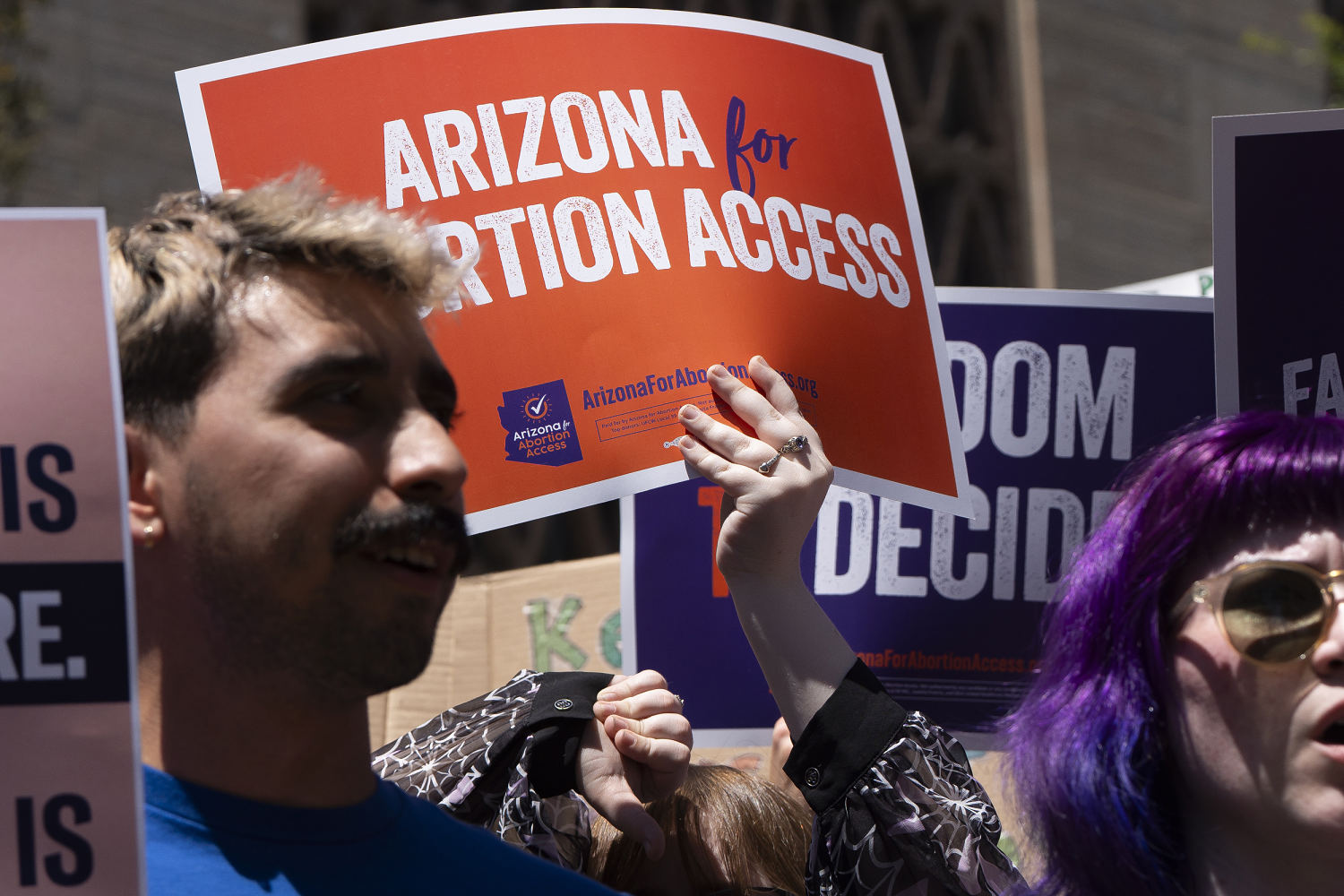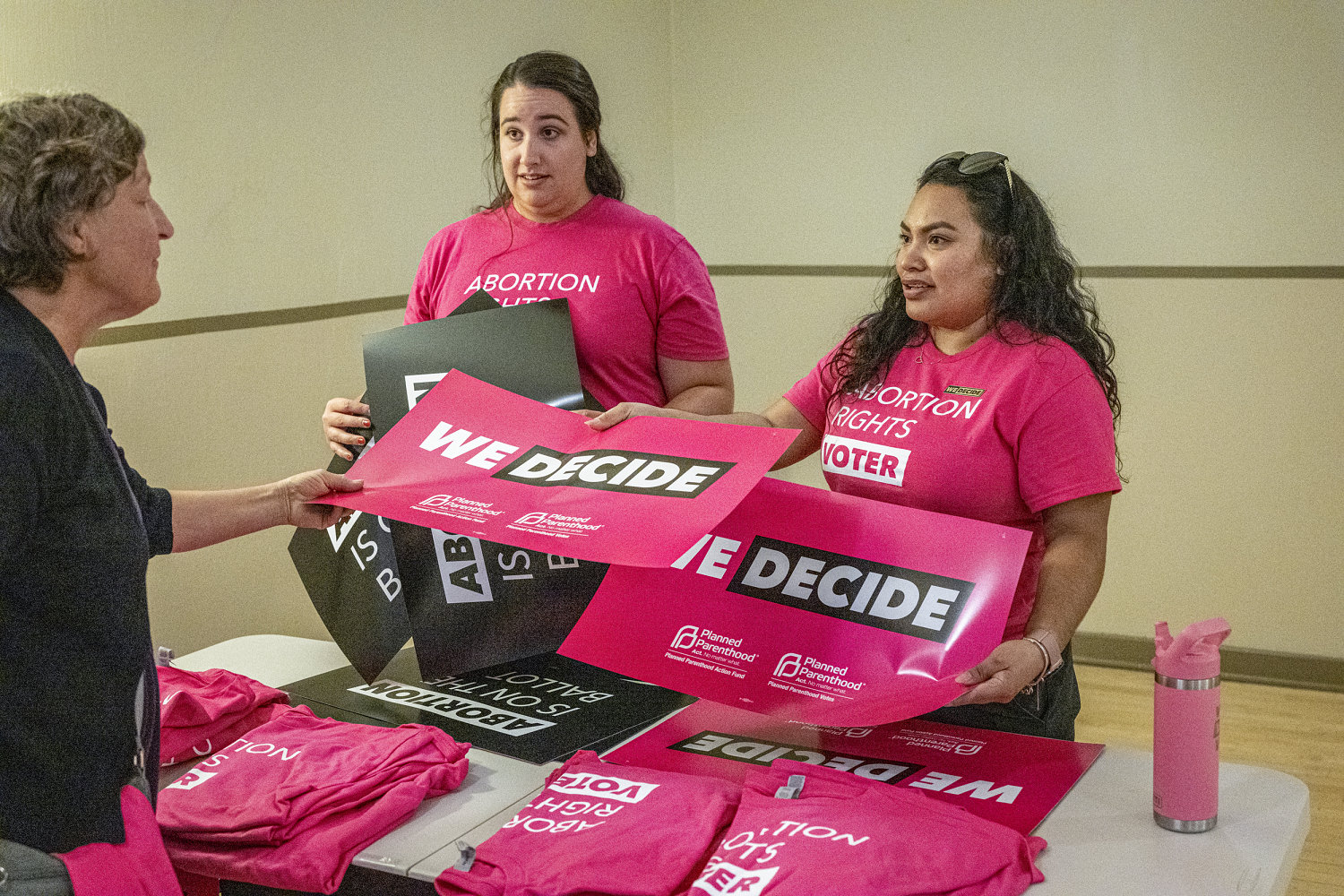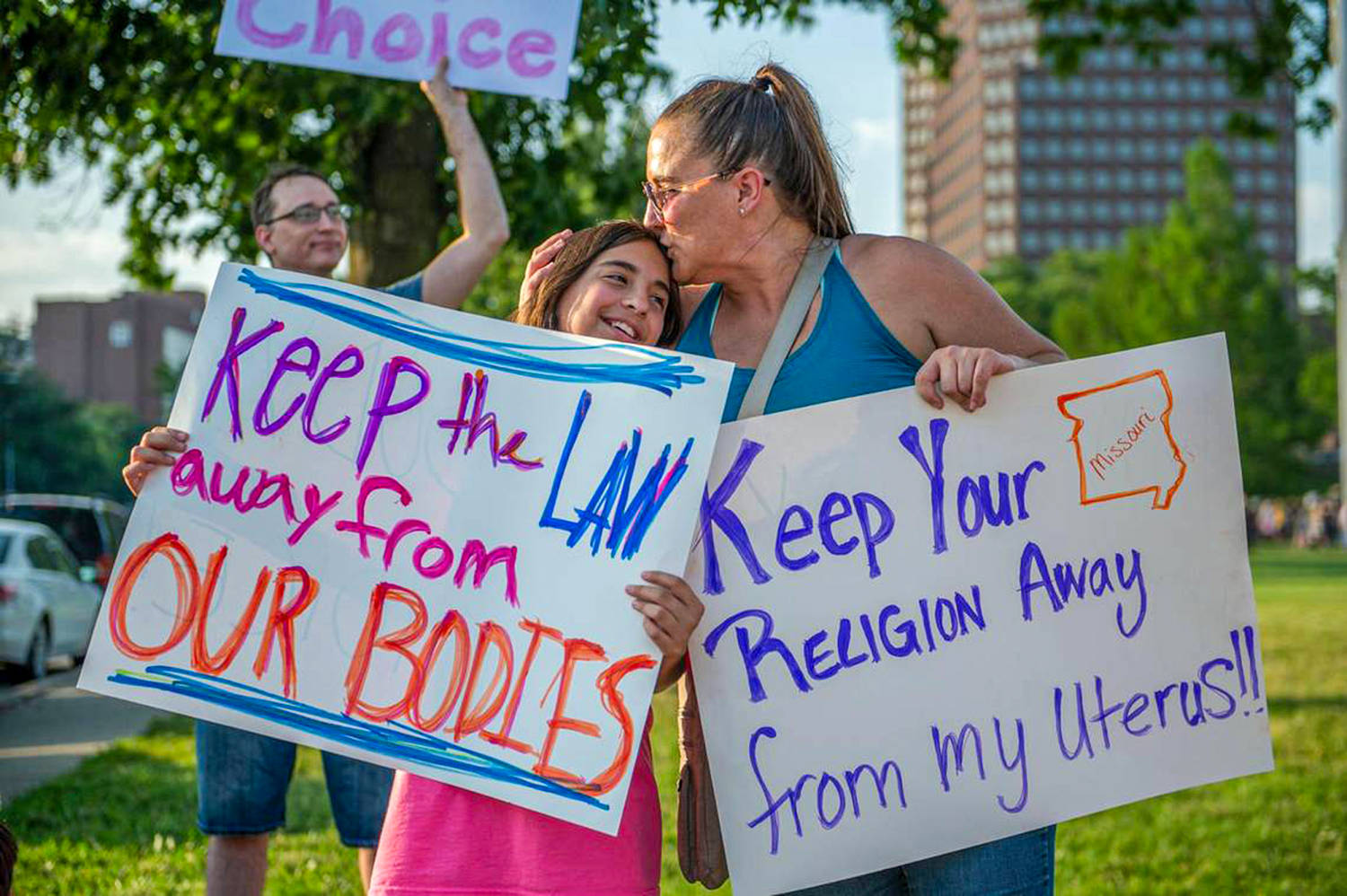Trump was right, voters want decisions about abortion to be made locally

Six months ago I wrote about how Donald Trump was supposedly in trouble on the issue of abortion. High-profile members of the pro-life community were threatening to abandon him. Consequently, Democrats were musing over the possibility of riding the abortion rights train to a White House-House-Senate trifecta.
The root of all that was language like this from Trump: “My view is now that we have abortion where everybody wanted it from a legal standpoint, the states will determine by vote or legislation or perhaps both, and whatever they decide must be the law of the land. In this case, the law of the state.”
To some on the right, that statement was anathema. Having “won” in the Supreme Court with the Dobbs v. Jackson Women's Health Organization decision, some pro-lifers wanted to press the advantage and push for federal legislative abortion restrictions.
The attacks on Trump made no sense to me back then. So many in the pro-life crowd, myself included, had been arguing for decades that abortion was, by its very nature, not a federal issue. Trump’s position heading into the election, then, had somehow gone from 50-year-old Republican orthodoxy to pro-life heresy.
That apparently made no sense to voters last week, either. And the proof for that is in the vote totals. What they tell us about the issue of abortion moving forward should be eye-opening to both parties.
Ten states had abortion issues on the ballot on Election Day. Several of them voted on the issue — and on the top of the ticket — precisely as you would expect. Deep blue Maryland and Colorado, for example, voted to protect pro-choice initiatives, and voted heavily for Kamala Harris. Reliably red states did the exact opposite, defeating abortion initiatives, and voting heavily for Trump: Florida and South Dakota, for example.
But it is the smattering of other states that shows just how right Trump was politically on returning the issue of abortion to the states. Voters approved abortion rights protections in initiatives in Montana, Nevada and Arizona, and the exact same electorates in those states also gave the White House to Trump.
In heavily Republican Montana, for example, the people approved a ballot initiative that "expressly provide(s) a right to make and carry out decisions about one's own pregnancy, including the right to abortion." And it wasn’t even close: The issue passed with 58 percent of the vote. But those same voters gave Trump a 20-point win.
It was the same — if not more consequential — in the swing states of Nevada and Arizona. In the former, Trump won by roughly 3 points, but the abortion rights measure on the ballot at the same time passed by nearly 30 points. In the latter, Trump won by 5 points; abortion by more than 20 points.
Even the Democrat stronghold of New York had some interesting numbers. Yes, the state went for Harris and for abortion. But I wonder how many people anticipated that at least half a million of those who voted for the abortion protections in that state would also vote for Trump.
The bottom line: Millions of people who voted to extend or expand abortion rights in their states also voted for the most pro-life president in history. Apparently, they believed what the pro-life community has been saying for years, and what Trump was pushing during the election: Abortion is none of the federal government’s business, and the issue is best dealt with in state capitals.
The pro-life movement had a huge win with the Dobbs case. The decision reaffirmed what many of us have been arguing our entire adult lives: that the Roe court had been wrong to federalize abortion, in essence creating federal law where none existed and removing the issue from the democratic realm.
Does that victory mean the battle over abortion is over? Absolutely not. In fact, in many ways, the fight is now more difficult, as the case needs to be made for life in 50 state legislatures.
The pressure on Republicans to enact sweeping federal legislation on abortion will be particularly fierce after the party completed the trifecta of wining the House, the Senate and the White House. But they need to listen to Trump, and to voters: Even people who are staunchly pro-life, and vote that way at the top of the ticket, want decisions about abortion to be made locally. Not in Washington.
Mick Mulvaney, a former congressman from South Carolina, is a contributor to NewsNation. He served as director of the Office of Management and Budget, acting director of the Consumer Financial Protection Bureau and White House chief of staff under President Donald Trump.
-
Democrats bet on abortion rights to fire up voters
World - Financial Times - October 24 -

Florida voters narrowly reject abortion rights measure
Top stories - BBC News - November 6 -

Arizona voters enshrine abortion rights in state constitution
Politics - NBC News - November 6 -

Arizona Voters Approve Abortion Rights Amendment
Top stories - The New York Times - November 6 -

Montana voters approve constitutional right to abortion
Politics - NBC News - November 6 -

Maryland voters pass abortion rights amendment
Politics - The Hill - November 6 -
Voters decide on abortion rights in 10 states
Top stories - CBS News - November 6 -

'No one is protected:' Harris warns voters about national Trump abortion ban at Texas rally
Politics - The Hill - October 26 -

Missouri voters approve ballot measure to expand abortion rights
Politics - NBC News - November 6
More from The Hill
-

Will Trump be the president to end the ‘triple standard’ in the Middle East?
Politics - The Hill - 26 minutes ago -

Bill O'Reilly: Donald Trump Cabinet will have zero policy input
Politics - The Hill - 50 minutes ago -

Will DOGE put spending on the chopping block?
Politics - The Hill - 56 minutes ago -

Stephen A. Smith: Trump may have ulterior motive for Gaetz pick
Politics - The Hill - 1 hour ago -

What RFK Jr. could — and couldn't — do with vaccines as HHS chief
Politics - The Hill - 1 hour ago